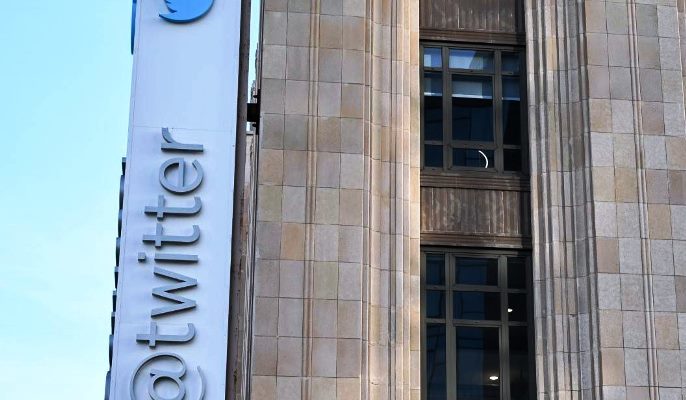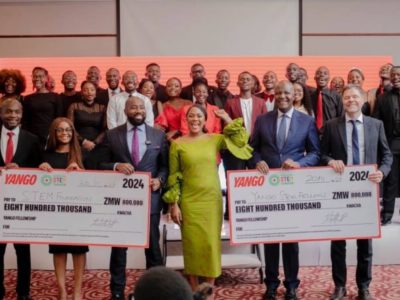At the dawn of Elon Musk’s takeover, Twitter fired staff in Ghana without severance. Why didn’t the government intervene?
When Twitter announced it would set up its Africa headquarters in Ghana, there was a lot of excitement in the country’s tech sector.
RELATED: Twitter closes African office in Ghana, sack all staff
The move established Ghana as a major competitor in the race, against Nigeria, Kenya, and Rwanda, to become Africa’s tech and innovation hub, and was accompanied by a big PR push – president Nana Akuffo Addo said it was the “start of a beautiful partnership” that was “critical for the development of Ghana’s hugely important tech sector”.
Two years later, Twitter had fired almost all of its African employees in Ghana. This happened suddenly, as a result of new owner Elon Musk’s global cost-cutting measures.
Although Twitter employees in other countries received severance packages, those in Ghana did not. Nor did Twitter fulfil its promises to pay the cost of repatriating foreign staff, or the legal expenses incurred during negotiations with the company.
Twitter is a global company, with subsidiaries in other countries such as India. It should be familiar with local labour laws – in this case Ghana’s labour act 2003, section 65, which clearly describes the need for negotiated severance packages in redundancy processes. In not doing this, Twitter deliberately ignored and flouted Ghana’s employment laws.
In November 2022, the ex-Twitter employees sent an appeal to the Chief of Labour Officer expressing their frustrations. Then in early 2023, after being ignored by Twitter, they sought help from the minister of employment and labour relations.
While the minister, Mr. Ignatius Baffour Awuah, did not directly intervene, he did permit the ex-Twitter employees to publicly say that the ministry had formally taken notice of the matter and claimed they were investigating the case after CNN reached out to them for comment. But this weak act did not give the case the traction it needed to draw the attention of Twitter.
The government of Ghana is not known for being silent about employee abuse by foreign companies. In 2016, the ministry threatened to cancel operating licences of companies following a scandal about workers being tortured.
In the end, it took Twitter (now X) almost two years to agree to a redundancy settlement. This only happened after the relentless ex-employees pursued the company, seeking legal assistance and drawing international media attention from the likes of CNN and the BBC.
So why didn’t the government of Ghana support the workers? Why did it not sanction Twitter for flouting not only the country’s labour laws but violating the human rights of the ex-employees?
While the government is not expected to directly interfere in private employment relationships, so as not to scare off foreign direct investment, this should have been an exception due to the government’s endorsement of Twitter’ establishment in the country and the international interest in Twitter’s poor handling of dismissing their employees.
Multinational corporations are known for not doing enough to protect workers’ rights, especially in countries with weak labour laws. It is important that the government of Ghana, using Twitter’s case, set a clear precedent for other interested global tech giants that they cannot engage in labour law violations without repercussions.
Any government that extracts political benefits from Big Tech companies establishing subsidiaries in their country should be responsible enough to protect employees when they are mistreated.
Carla Olympio, the attorney who represented the ex-employees, told me: “In such a high profile case… I believe the National Labour Commission or the Ministry of Employment and Labour Relations could have made a clear and firm statement of its stance of not condoning unfair treatment of Ghanaian employees and that the government is paying attention to ensure the labour laws are enforced.”
Similar labour disputes are ongoing in other African countries, such as the case of Meta’s unlawful dismissal of content moderators in Kenya. The Kenyan government has also been silent and even partnered with the outsourcing company involved, Sama Source, to give AI jobs to young Kenyans. The Kenyan case was the first time Meta has been subjected to a court of law in the global majority, marking a significant turning point in Africa’s tech labour trajectory. The Kenyan labour court ruled that Meta, a US-based tech company, can be sued in Kenya even though it does not have a physical presence in the country.
It is important to acknowledge that a handful of these tech giants, mostly American companies, wield more financial and technological firepower than a lot of governments across the world. They can overstate their economic value in countries where governments are struggling to hack the youth unemployment problem.
The “creating jobs through tech” song usually brings African governments to the dancefloor and can shield tech companies when they violate the laws. But it relies heavily on PR. Twitter Africa’s presence in Ghana inspired hope for more tech-related jobs for Ghanaians, a message preached by the communications minister. But Twitter Africa had only 11 employees before the closure.
There are potential geopolitical implications to the Ghanaian government sanctioning a global tech company that serves as a conduit for the US’s digital foreign policy, such as a reduction of aid support for Ghana’s digital transformation, However, the government of Ghana could have protected the rights of the workers to rearticulate its digital independence especially in an era where African countries are being used as techno-geopolitical pawns by global tech rivals.
____
Kofi Yeboah’s independent writings and research broadly focus on tech and society with an interest in AI and inclusivity, AI and geopolitics, and AI narratives, through the perspective of the Global South, particularly Africa. Currently, he works with the Mozilla Foundation as a programme officer. This article does not reflect the views of his employer.
Credit: openDemocracy





























